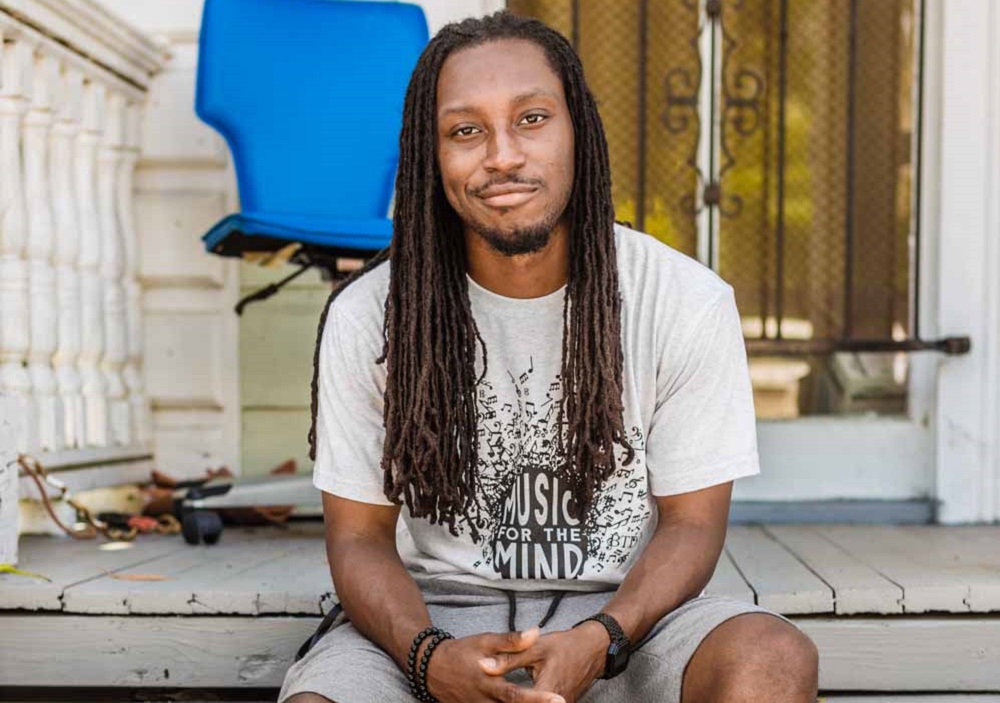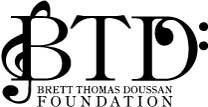
Describe your music in three words.
Passionate, genuine… good. (laughs). Good.
Your music is deeply tied to the topic of mental health. Give us a brief insight into your newest release, “Mere Exposure Effect,” and how that developed from your last album “The Beautiful,” which written following your older brother’s death by suicide.
It’s something different, something I’m not known for doing. I wanted to take a step in another direction because “The Beautiful” was a lot… I’ve been saying, if it was a sandwich, it would have four patties in it, because it just really went all the way. With “Mere Exposure Effect” I just wanted to have a bit more fun, let it all hang out, because we know one of the most important parts of taking care of your mental health is relaxation. Even the title of it is a mental phenomenon, the idea that people pick or choose things purely based on being familiar with it, or by repetition. Mental health will always be an important topic to me and it’ll end up in my music regardless of how the music sounds.
Following up on that thought, “The Beautiful” was a really heavy album for you to write and release, given the nature of your brother’s death and his dealings with schizophrenia throughout his life. Prior to that album, did you use music in a therapeutic way as strongly?
I was always using music as therapy but I didn’t really know. At first it was like, “Yo, I rap good, this how good I rap” but then it started to get personal. I had a situation with an ex-girlfriend and made a song called “Love Will Make You Do Crazy Things,” explaining every detail of the break-up. One of my homeboys told me he appreciated me being candid but thought I could have saved some details for myself… but I had gotten really into using music to get these personal feelings off my chest. When my brother died, it just went into overdrive even more. It’s using music to tell people how I feel before I actually say it in a conversation.
You’ve grown much musically and personally since you first started rapping around the city as ‘Lyriqs the Lyriciss,’ a decade ago! Tell us about that.
I’ve experienced a lot more since them, but I miss that little guy sometimes! (Laughs). I’m in a place where I’ve just grown up, especially with my brother’s death, my family’s situation, becoming more of a family-oriented person, watching out for my goddaughter and trying to be there for my brother’s son as much as I can, so all these different things have kept pushing my current incarnation of Alfred. I used to live kind reckless, like “If I die tomorrow, it doesn’t matter,” because music was all I cared about. I didn’t take care of myself and didn’t even like myself a lot of the time, thought I was only good for making music, but I had a relationship come into my life that changed my perspective and taught me that I am somebody, and it’s more than just music. To take care of myself better, listen to my body, to my mind. Which makes the music better and allows the energy I put into the world to be good, to come back to me in the same way.
What’s the earliest musical experience that inspired you to pursue music professionally – that “I want to do that” moment?
I was growing up on RnB, soul, funk from my mom, and my brother getting into No Limit stuff, but the moment I heard Busta Rhyme’s “E.L.E.” album, I felt like it was the dopest thing on the planet. It was colorful and fun, and as a 7 or 8-year-old kid, I was just like, “Wow. What is this?!” It was completely new and exciting to me.
And then when I was older and Lupe Fiasco put out the “Food and Liquor” album, I felt like, “Oh, I can really do this now.” I related to it! He’s talking about skateboarding, and real world stuff, and it felt like, there was someone out there who was like me. He was an outcast and people talked on him, but he was successful and true to himself. When I first came out, I was a little rough around the edges and I didn’t know how to reign it in, but I looked to Lupe as someone who was able to be himself while still being professional and positive.
So speaking to the idea of people talking poorly about musicians who are putting out what’s true to them, how do you navigate when people do say negative things about you or your music?
On one side of things, it can hurt. I’m an introvert by nature, so talking to people, even through the internet, is me putting out energy to connect with someone. If someone is running up on me appreciating me, I love that, but it can still be a little draining because of me being introverted. If I didn’t do music, I’d be a hermit crab! Then, with that said, it feels worse when it’s folks approaching me with some hateful energy.
But I gotta say, my family, my girlfriend, my friends really help me monitor those feelings of anger or sadness that come with people you don’t even know spreading hatred toward you. I’ve got a good friend who is a mental health counselor, and our friendship means so much to keeping me grounded with all that. Definitely the community around me is important to being stable.
Allen Toussaint once stated, “Music is everything to me short of breathing. Music also has a role to life you up-not to be escapist but to take you out of misery.” With that being said, how has music gotten you through hard times in your life?
In the most literal sense, if I didn’t do music, I’d be dead. Growing up, I thought about suicide a million times, and I’m so grateful to have music for that reason. It literally changed my life, made me want to wake up and do something… I did that Volkswagen commercial and it changed my life, not only just using music on a bigger platform, but going from being barely known to being able to feed myself thanks to music. I get to do what I love, and I’m so grateful. I worked hard to get here… and being honest in my music meant everything. When my mom heard “The Beautiful,” she cried. I’ve had fans tell me that album saved their lives, stopped them from ending their own life. To me, that means so much more than anything money could ever mean, just having that connection with people. I never knew I had the capacity to do that, and music is what made it happen.
So you mentioned having felt suicidal in your life. How have you managed that?
I go to therapy now and have been going since the beginning of the year. Before that, it was only music, and music is still my number one… I knew about therapy but just didn’t even really think about it. Now, I think therapy is important for me to take care of myself. I can go into this “black space,” and therapy helps me check that. And, of course, having good people in my life, and music at the forefront.
You bring up something interesting: you knew about therapy but hadn’t really thought to use it. Research shows that communities of color are traditionally known for being less likely to seek mental health resources or admit the presence of mental illness. So, to you, how important is it to spread the message that it’s okay to ask for help?
It’s extremely important. When I played “The Beautiful” for my mom, she was like, “Baby, you gotta put this out in the world, people gotta hear this.” She knows. When I was 11, I remember telling my mom that I didn’t feel good. And she asked if I was sick, but I said “no, I don’t feel good in my head, like, I think I need some help.” And she said, “Well, we’re gonna pray. We’re gonna pray it away.” My stepdad just laughed, like “That boy crazy.” That’s a black family, really, and I just took it. Then I became homeless later in life, dealing with a lot of stress in life, not knowing how to act, and I just wonder if my asking for help had been handled a little better, if I could have been a better person, if I could have acted better.
I do think it’s very important for the black community to acknowledge that mental illness is real. Yeah, religion can be a positive crutch, and prayer gives hope, but having a tangible medium to tackle mental illness is crucial. I’m happy to be able to contribute to the conversation and be honest about therapy, and other mental health work, as needed for improving mental health.
When thinking of the phrase “Music for the Mind,” which is what the BTD Foundation is really built around, what does that mean to you?
Music for the mind, to me, means support. When you’re having mental issues, it can be the mood changer, cheer the whole thing up. Using music as a way to change the mood, no matter what song you’re listening to. That’s what comes to my mind immediately.
And lastly, a fun one: You’re singing karaoke on an off-night – what’s your go-to song?
Kanye West’s “Love Lockdown.” I remember when it dropped, I was like, “Whaaaat is this?” Everyone was hating on him for it but now everyone is using autotune in their hip-hop. That would definitely be my karaoke joint!
Final thoughts for the end of our interview?
Yeah! You can check out my music and connect with me everyone online, social media, website, all that, and the new record (“Mere Exposure Effect”) is on all digital platforms, as well as “The Beautiful,” so check it out, share it with your folks.
Don’t be afraid to ask for help and go get it. Always work hard and look for ways to move forward.
Photography by Jose Cotto.

